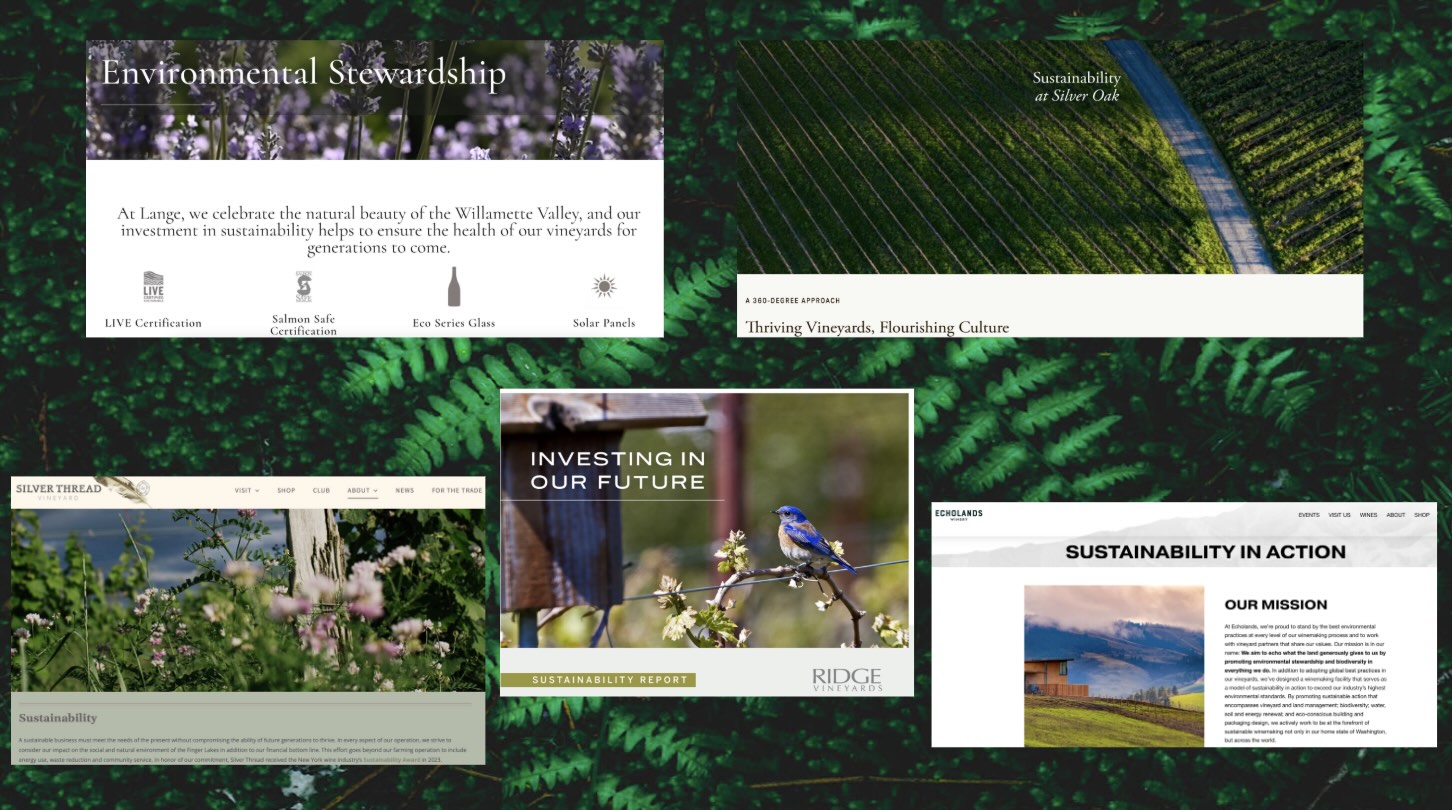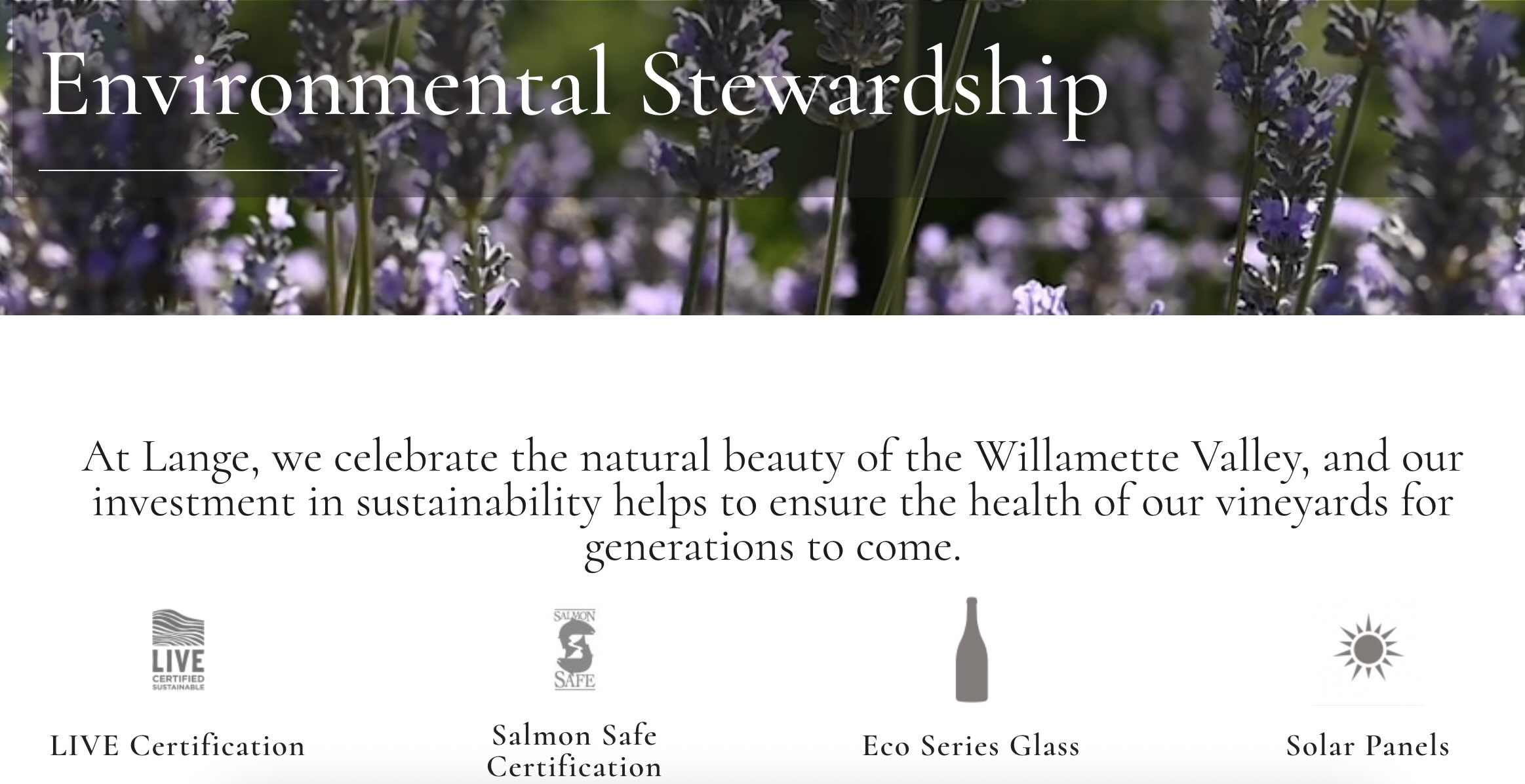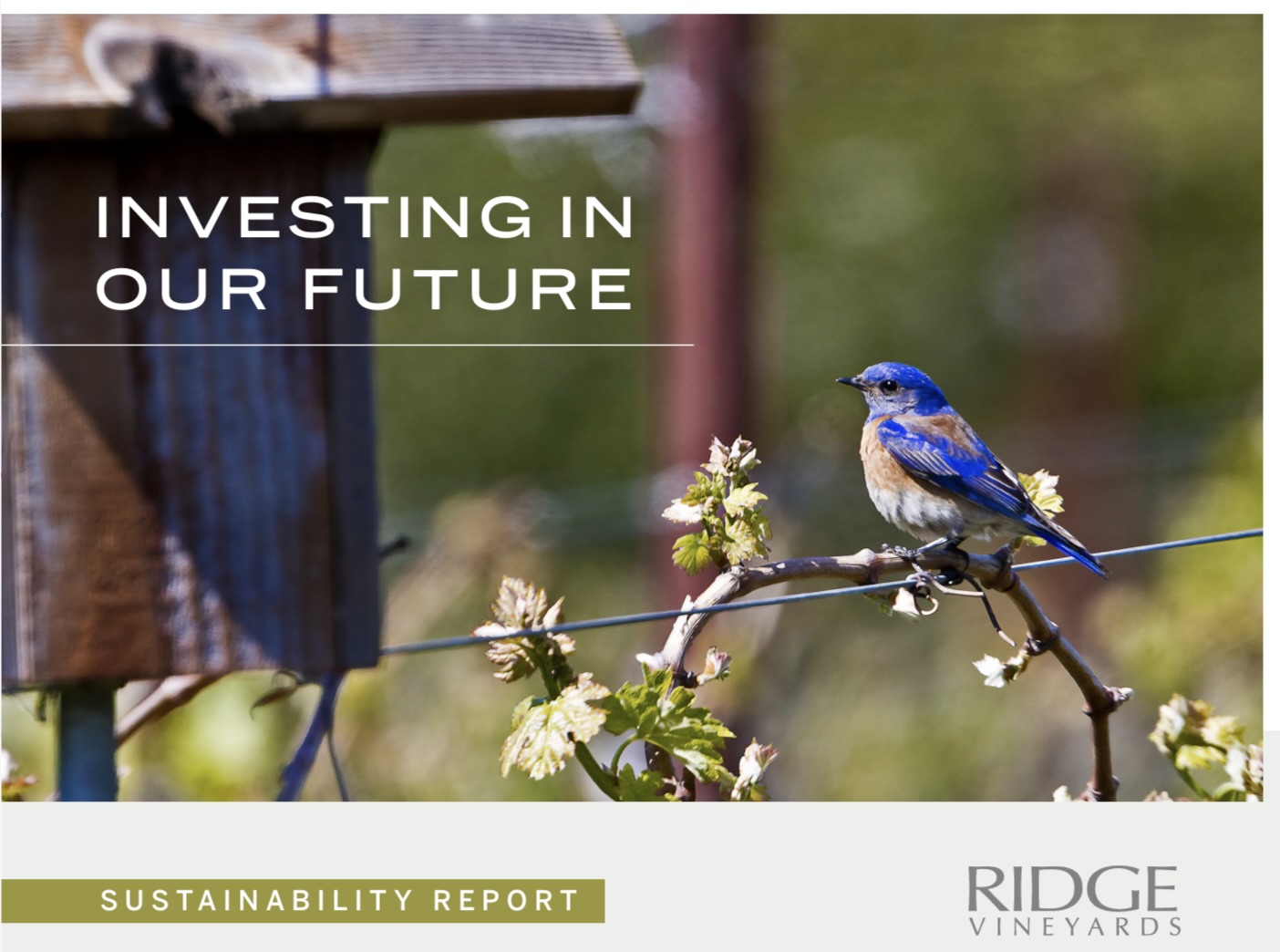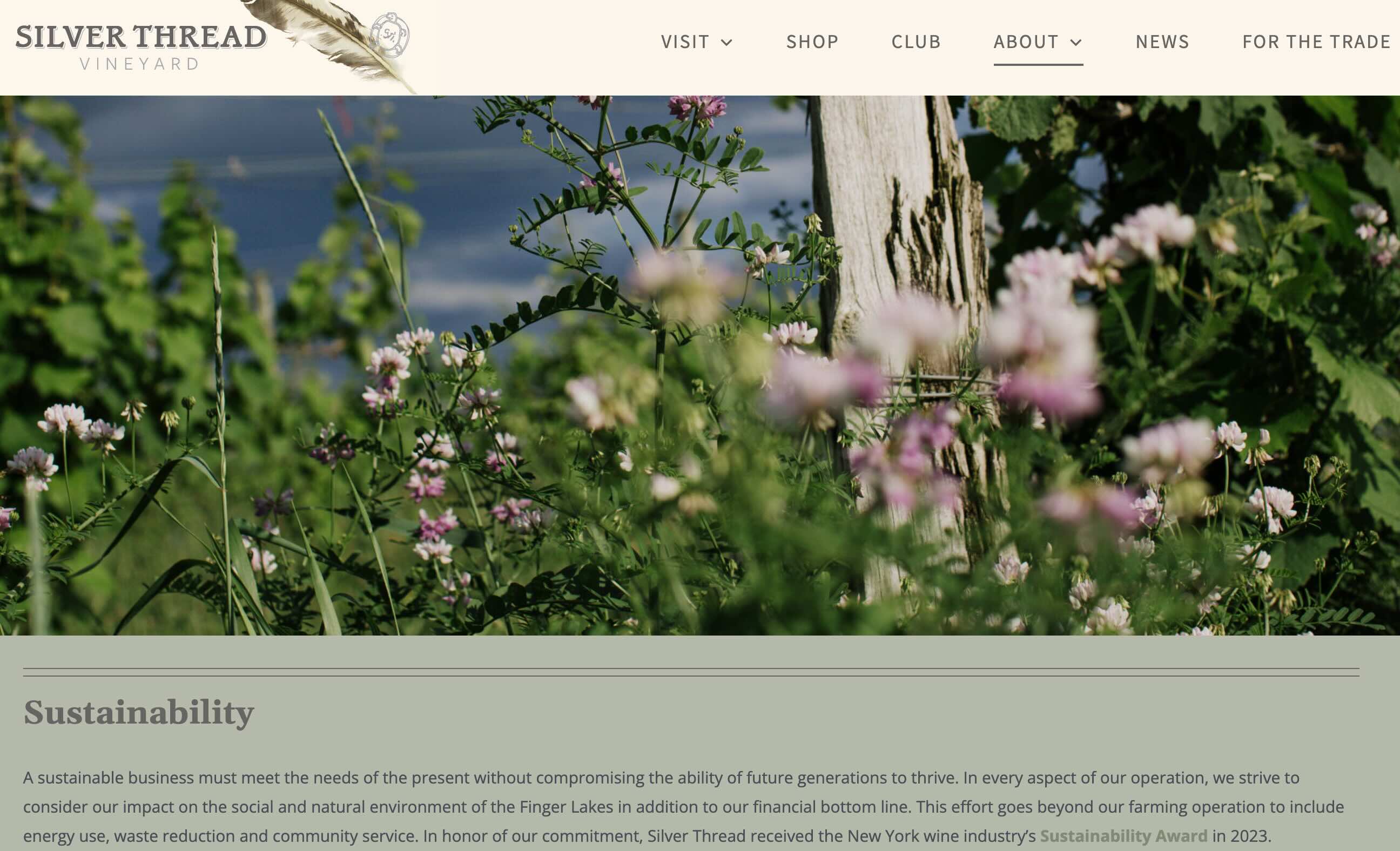Five Regional Wineries Leading on Impact Reporting

Introduction to Impact Reporting
Impact reporting is a powerful way a company can better understand and communicate the effects that their business has on people and the planet. Assessing and sharing a carbon footprint or other sustainability information can also underscore a company’s values and engage customers, the community, and other stakeholders. Whether it’s a stand-alone impact report (also known as a sustainability or Corporate Social Responsibility/CSR report), integrated with a financial report, or a webpage, impact reporting shows which companies are not only talking the talk, but walking the walk.
What Makes for Great Impact, Sustainability, or CSR Reporting
If you’re afraid that reporting will lead to a lot more work for you and your team, surprise! More pages and narratives aren’t necessarily better, and you want to avoid overwhelming your audience with information. Great impact reporting focuses on priorities for the company’s industry and stakeholders. For alcohol producers, industry priorities are water management, energy management, responsible drinking and marketing, packaging, and ingredients supply chain/sourcing, according to the SASB standard. Considering the impact of growing grapes, priorities also include GHG emissions, food safety, workforce health and safety, and GMOs. Unique priorities of a company’s community and other stakeholders should also guide where to focus efforts.
In ClimateHound’s opinion, the best impact reporting balances quantitative data (like waste diverted from landfills) and qualitative descriptions (such as summaries of packaging choices and other initiatives). It’s important to update reports at least annually to maintain stakeholder trust and usefulness of the information. Impact reporting also stands out when understanding and managing impact is woven into the company’s business model and goals.
Five Regional Wineries Leading on Impact Reporting
Lange (Oregon)
Lange provides focused details about their sustainability efforts, including how they utilize local options and certifications. We appreciate the insights on sustainable glass bottles and participation in Oregon’s exciting reusable bottle program through Revino.

Ridge Vineyards (California)
With their stand-alone report and webpages, Ridge Vineyards provides significant transparency to their many sustainability efforts. This level of reporting can serve as a model for others, particularly in carbon footprint calculation and goals, electrification, packaging, and International Wineries for Climate Action (IWCA) working group participation.

Silver Thread (New York)
Silver Thread outlines their approach to priority issues simply and effectively, illustrating that a little effort on impact reporting goes a long way. Particularly noteworthy is their goal to be a zero-waste company and their sharing link to what that means.

Silver Oak (California)
Also participating in the International Wineries for Climate Action (IWCA) working group, Silver Oak provides quantitative data related to carbon footprint, water, and energy. We also appreciate their efforts related to buildings, including LEED certification.

Echolands Winery (Washington)
Echolands emphasizes their commitment to sustainability and continuous improvement, and they offer details about what that means in practice. With high-level information on priority issues all in one place, we can quickly understand where efforts are focused and drill down to learn more.

The More Producers Reporting Impact, the Better, and ClimateHound is Here to Help
Of course, these are only five examples of the great impact reporting being done by small-to- mid-size beverage producers as well as large companies. Here at ClimateHound, we love seeing more beverage producers reporting impact, and the data and insights our platform provides can make it easy. Impact reporting doesn't need to take a significant amount of your precious time or a dedicated, in-house sustainability specialist or marketing professional.
Through the process of completing a carbon footprint with ClimateHound, your company can easily collect priority environmental data and automatically become equipped with a short sustainability story, quantitative impact data, and other resources to share with your stakeholders. Gain a better understanding of your impact and share your story today!


